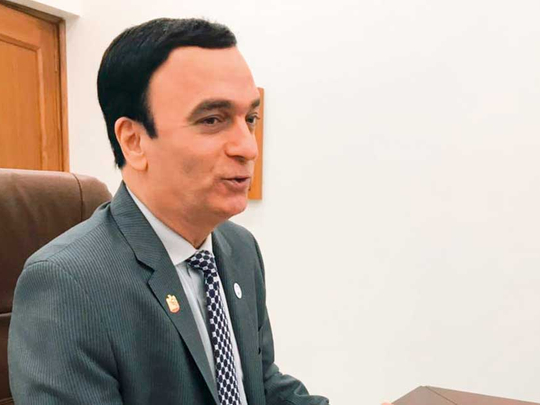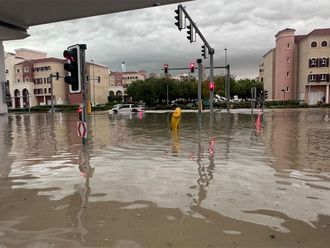
New Delhi: The UAE and India are looking to sign up to 14 agreements and memoranda of understandings during the visit of Indian Prime Minister Narendra Modi on February 10-11, a top UAE diplomat said on Tuesday.
“We are expecting to sign between 12 to 14 agreements during the visit of prime minister Modi,” Ahmad Al Banna, UAE Ambassador to India, said during an interaction with UAE media in New Delhi. The agreements will include sectors such as finance, space technology and skills development, he said.
“During the first visit of prime minister Modi to the UAE [in 2015] there were about 14 agreements that were signed; during the visit of His Highness Shaikh Mohammad Bin Zayed Al Nahyan, Abu Dhabi Crown Prince and Deputy Supreme Commander of the UAE Armed Forces, there were 17 agreements signed, and last year another 14 agreements were signed. The historic relations between UAE and India have always been there, but they have now diversified to new sectors such as IT, space technology, defence manufacturing, security, counter-terror cooperation, education and renewable energy, mainly due to the successful visits of Shaikh Mohammad Bin Zayed and Modi,” Al Banna said.
- Ahmad Al Banna | UAE Ambassador to India
Modi will be keynote speaker at the 6th World Government Summit in Dubai on February 11, in which India is the chief guest, he said.
On the scope for reviewing bilateral flight capacity between the two countries, Al Banna told Gulf News: “When the UAE and India signed an agreement on aviation, it said that if 85% of the seat capacity is reached by the carriers from both countries, then it will be time for renegotiation. Currently, UAE carroiers are operating at 100% capacity while Indian carriers are at more than 85%. It is therefore time for renegotiation of the air service agreement. There is a request that has been raised by the UAE GCAA with its Indian counterparts for a new round of negotiations. Although we have promised twice for a meeting, due to some technical reasons it has not happened yet. But very soon there will a meeting between the two authorities to look at new capacities that can be implemented,” he said.
There are 1,076 weekly flights that operate between India and the UAE currently, with UAE carriers getting a share of 137800 seats per week.
On whether any UAE carrier would be interested in a stake in Air India, the ambassador said: “It is great that India is opening up its aviation and other sectors for foreign direct investment. India will stand to gain from this in the long run.”
A proposal for visa-free entry of Emiratis to India is also under consideration, Al Banna said. “A file for visa-free entry for regular UAE passport holders will be submitted through the official channels for Indian authorities,” Al Banna said. “The UAE has significantly eased the issuance of visas for Indians – with Indian nationals having US visas or UK/EU residency stamped on their passport able to get UAE visas on arrival,” he said.
Al Banna said the momentum created by the recent investments in the National Infrastructure Fund, the twice a year meeting on the UAE Strategic Group and the Task Force, as well as progress in counter-terror cooperation were a sign of the increasing synergy between the two nations.












